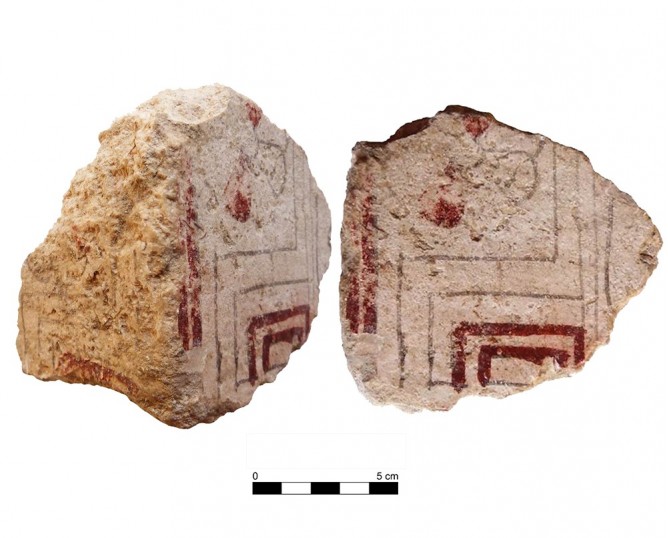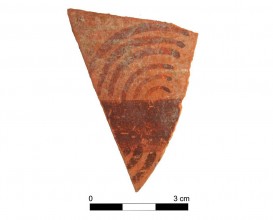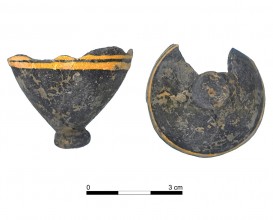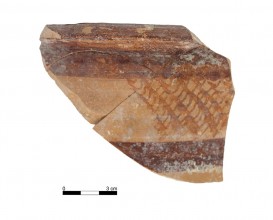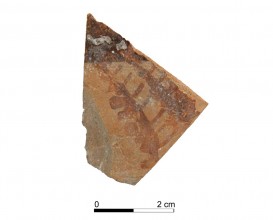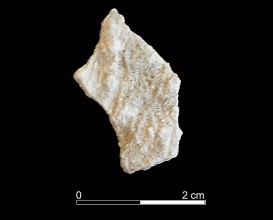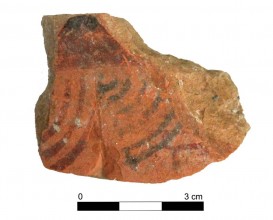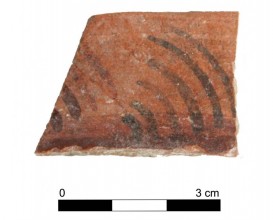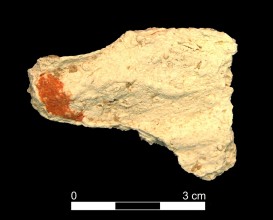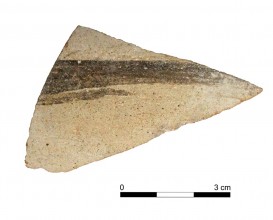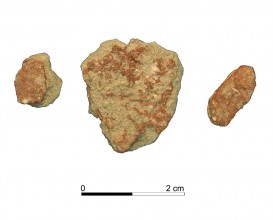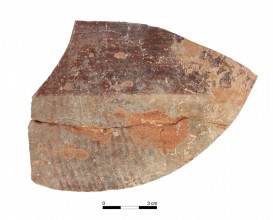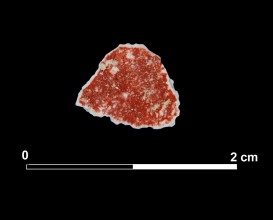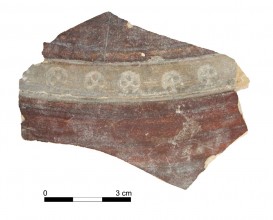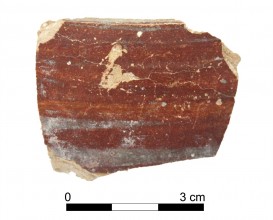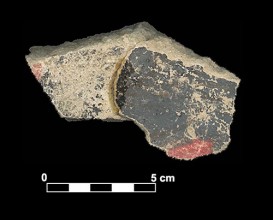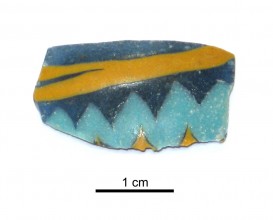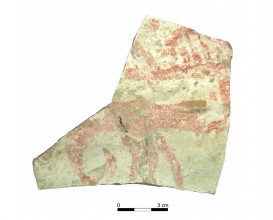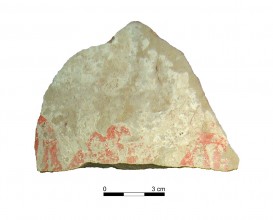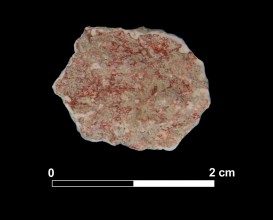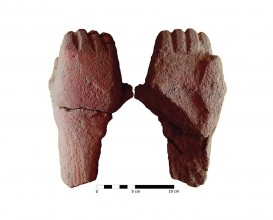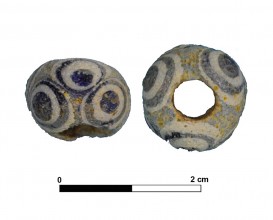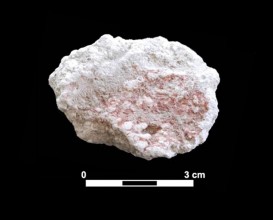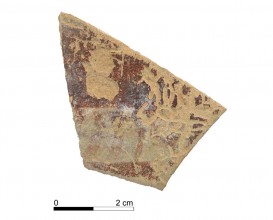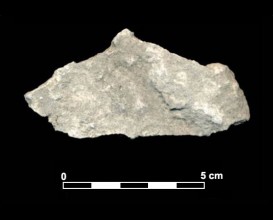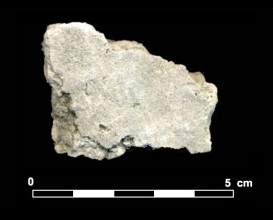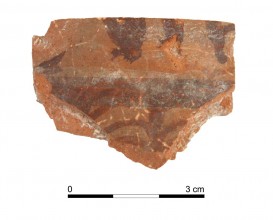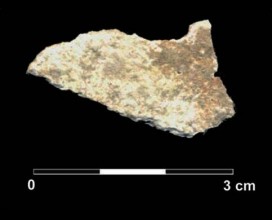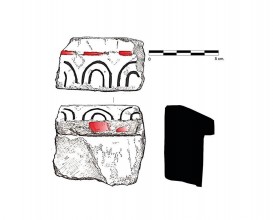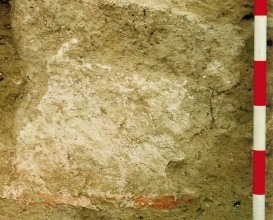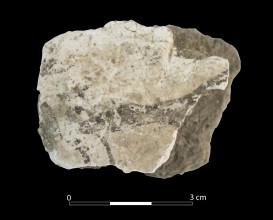Funerary urn 76044. Burial mound 76. Cemetery of Tútugi.
Dimensions
: 6 Centimeters
: 9.4 Centimeters
: 9 Centimeters
Materials
Stone
Temporal
: Iberian, Iberians
: Early 3rd ct. BC.
Spatial
: Cemetery of Tutugi
: Galera, Granada, España
: WGS84
Copyrights
Creative Commons - Attribution, Non-Commercial, No Derivatives (BY-NC-ND)
References
Sánchez, A., Tuñón, J.A., Montejo, y Parras D. J. (2012): “Micro Raman spectroscopy (MRS) and Energy dispersive X-ray fluorescence (µEDXRF) analysis of pigments in the Iberian cemetery of Tútugi (4th-3rd century b. C., Galera, Granada, Spain)”. Journal of Raman Spectroscopy. 43 (11): 1788–1795.
Rodríguez Ariza, Mª O. (2014): La necrópolis ibérica de Tútugi (2000-2012). CAAItextos. Universidad de Jaén, Jaén.
Sánchez, A.; Parras, D.; Tuñón, J. A. y Ramos, N. (2014): “Análisis de recubrimientos y pigmentos en la necrópolis ibérica de Tútugi (Galera, Granada)”, Mª O. Rodríguez (ed): La necrópolis ibérica de Tútugi (2000-2012). Universidad de Jaén e Instituto Universitario de Investigación en Arqueología Ibérica, Jaén. 349-368.
Digital Resources
-

Creative Commons - Attribution, Non-Commercial, No Derivatives (BY-NC-ND)
Arquiberlab
http://creativecommons.org/licenses/by-nc-nd/3.0/ -
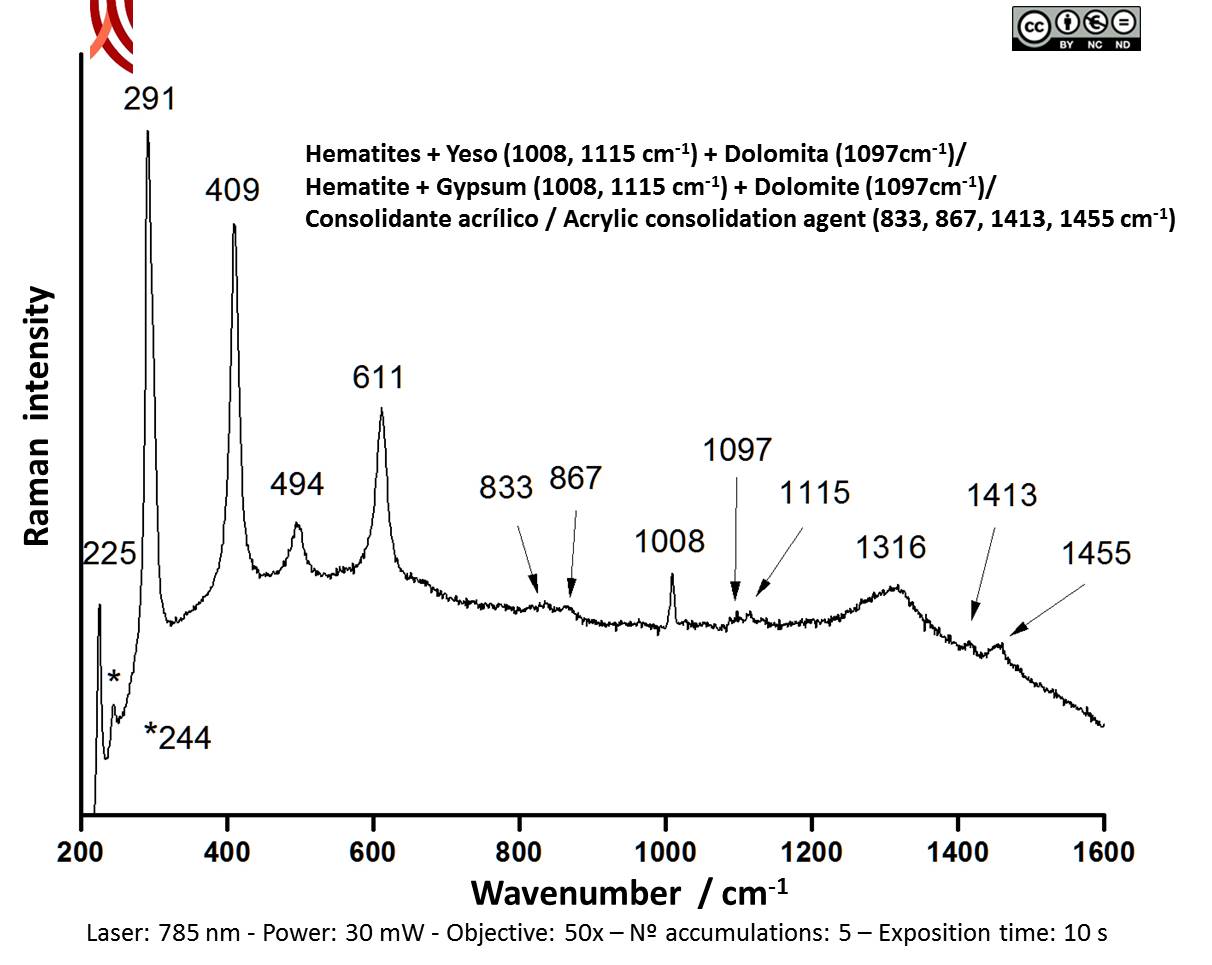 Instituto Universitario de Investigación en Arqueología Ibérica
Instituto Universitario de Investigación en Arqueología Ibérica Creative Commons - Attribution, Non-Commercial, No Derivatives (BY-NC-ND)
Arquiberlab
http://creativecommons.org/licenses/by-nc-nd/3.0/ -
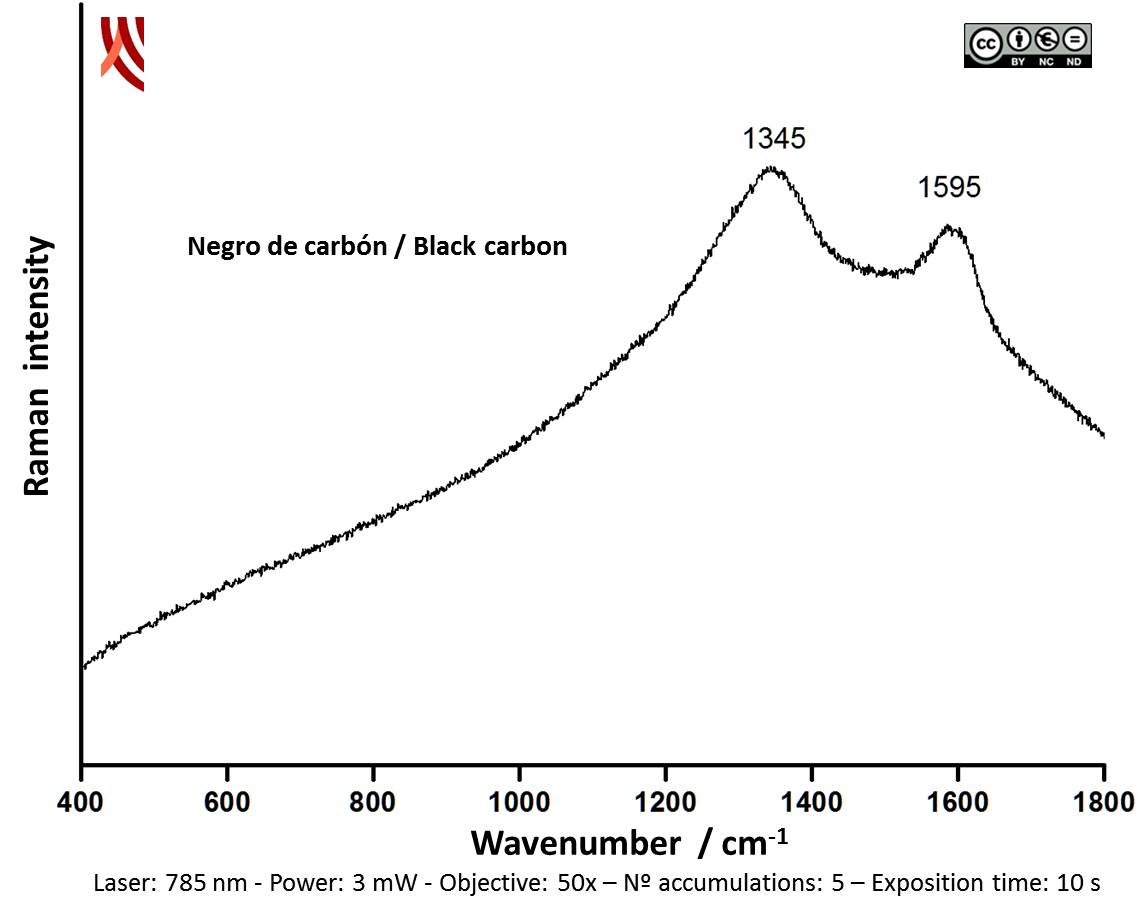 Instituto Universitario de Investigación en Arqueología Ibérica
Instituto Universitario de Investigación en Arqueología Ibérica Creative Commons - Attribution, Non-Commercial, No Derivatives (BY-NC-ND)
Arquiberlab
http://creativecommons.org/licenses/by-nc-nd/3.0/ -
 Instituto Universitario de Investigación en Arqueología Ibérica
Instituto Universitario de Investigación en Arqueología Ibérica Creative Commons - Attribution, Non-Commercial, No Derivatives (BY-NC-ND)
Arquiberlab
http://creativecommons.org/licenses/by-nc-nd/3.0/ - Instituto Universitario de Investigación en Arqueología Ibérica
pdf file
Creative Commons - Attribution, Non-Commercial, No Derivatives (BY-NC-ND)
Arquiberlab
http://creativecommons.org/licenses/by-nc-nd/3.0/ -
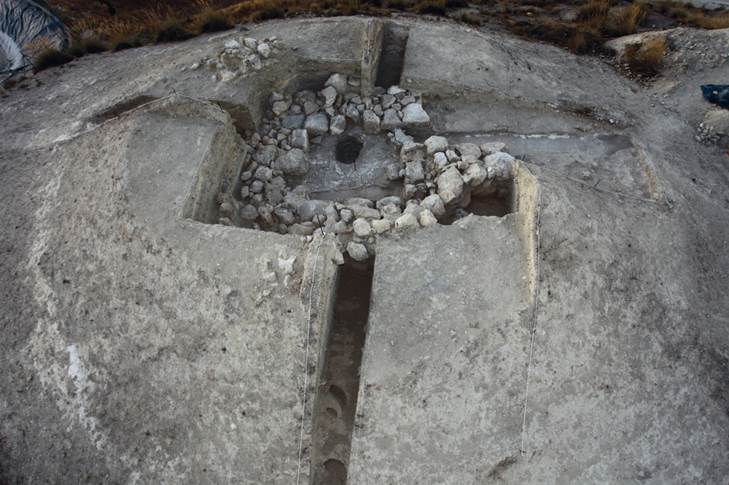
Creative Commons - Attribution, Non-Commercial, No Derivatives (BY-NC-ND)
Arquiberlab
http://creativecommons.org/licenses/by-nc-nd/3.0/
Activities
Archaeometric analysis Physical-chemical analysis Stone funerary urn. Analysis of decoration.
| |
Spectroscopic analysis Mineral analysis of the red and black decoration and the white layer Non destructive. Surface cleaning. Sample pretreatment is not required. Direct measurement. Micro-Raman Spectroscopy (MRS) Renishaw ‘in via’ Reflex Spectrometer coupled with a confocal Leica DM LM microscope (CICT, University of Jaén), equipped with a diode laser (785 nm, 300 mW), and a Peltier-cooled CCD detector, calibrated to the 520.5 cm-1 line of silicon. | |
X-Ray Fluorescence Elemental analysis of the white layer and the red decoration Non destructive. Surface cleaning. Sample pretreatment is not required. Direct measurement. Energy dispersive X- ray fluorescence (EDXRF) EDAX (model Eagle III) fluorescence spectrometer (CITI, University of Seville). This spectrometer is equipped with a microfocus X-ray tube with an Rh anode, a polycapillary lens for X-ray focussing, and an 80 mm2 energy dispersive Si-(Li) detector. The sample chamber incorporates an XYZ motorized stage for sample positioning. A high resolution microscope is used to position the sample on the desired distance from the polycapillary. To increase the sensitivity of the low Z elements, the sample chamber can be brought under vacuum. For the analysis of the samples, a spot size of 300 µm was chosen at an operating X-ray tube voltage of 40 kV. The tube current was adapted for each sample in order to optimise the detection of X-rays. |

